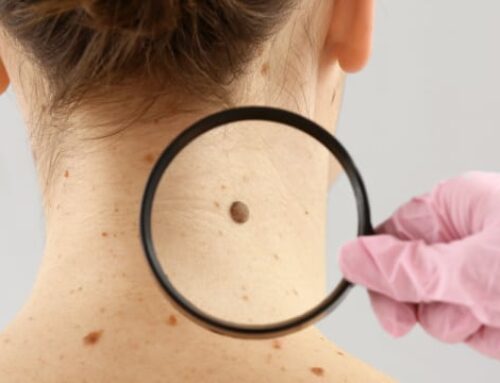If you have fair skin, spend a lot of time outdoors, or have a family history of melanoma, it’s crucial that you remember an annual skin cancer screening. For most people, monitoring their skin through at-home self-exams is enough to monitor for skin cancer. However, anyone with an increased risk of skin cancer should get checked annually by a qualified dermatologist like Dr. Krant, because skin cancer is often easy to treat and cure when it’s caught early. Here is what you can expect from your skin cancer screening, with Dr. Krant.
Before Your Screening
A skin cancer screening is performed by a dermatologist. Prior to your screening at Art of Dermatology, you should examine yourself so you can let Dr. Krant know of anything that looks unusual. Use a full-length mirror or handheld mirror to check all over your skin, including areas you wouldn’t consider. Keep note of moles or growths that are new, have changed over time, bleed, or itch.
What to Expect from a Skin Cancer Full Body Exam
A skin cancer screening usually takes around 10 minutes or more if the doctor sees any moles that look suspicious. Before the exam, you will have to remove your clothing and wear a medical gown. Dr. Krant will ask if you have any moles you’re concerned about and then proceed with the examination. Every inch of your body will be thoroughly looked over, even between your toes and the bottoms of your feet.
What Does the Doctor Look For?
Skin cancer screenings are performed while checking the ABCDEs of moles to see if there are any signs of skin cancer. The ABCDEs include the following:
• Asymmetry: Moles that are not the same shape on either side
• Border irregularity: Moles that have ragged or blurred edges
• Color: Moles with varying shades of brown or black
• Diameter: Moles that are larger than one-quarter of an inch
• Evolving: Moles that change over time
Dr. Krant will also check for skin changes known as actinic keratosis. This is caused by damage from the sun that can become cancerous if it’s not treated.
Mole Biopsy
While Dr. Krant can visually examine your body to find moles that may be cancer, this isn’t a definitive way to ensure that you have it. A biopsy must be performed. If you have a mole the doctor suspects may be a problem, you will receive a shot to numb the area and scrape off as much of the mole as possible to send it off for testing in a lab.
If the biopsy turns up positive for cancer, Dr. Krant will walk you through the next steps you should take and the appropriate treatment for your personal situation. Because determining skin cancer is often complex, you will want to consult your primary care physician as well.
Who is at Greater Risk for Skin Cancer?
Certain people are at greater risk for skin cancer. These people should get an annual skin cancer screening. Higher risk groups include the following:
• Blond or red hair, fair skin, freckles and blue or light-colored eyes
• Having more than 50 moles
• History of a lot of sun exposure
• One or more bad, blistering sunburns
• Family history of melanoma
• Personal history of basal cell or squamous cell skin cancer
Schedule a Consultation
Dr. Jessica Krant wants you to love the skin you’re in, and that means being on top of caring for your skin. If you live in New York and want to get a skin cancer screening, contact Art of Dermatology by filling out our contact form.







Leave A Comment